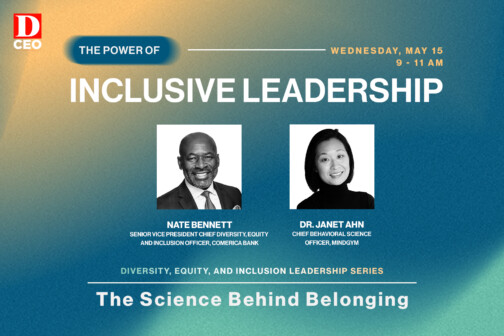Seventeen-year-old Alex Shultz sent me an unsolicited manuscript that he’d written about his experience refereeing basketball games for 7-year-olds and how it has affected his search for a summer job. I’m here to say that young Alex has himself a future as a wordsmith — if he’s dumb enough to choose that route. I offer his essay, unedited, for your reading pleasure:
Technical Foul By Alex Shultz
I’m a 17-year-old high school junior searching for a job.
Truth is, I’d love to call up ESPN writer Bill Simmons and ask to be his designated sports-viewing couch potato for the summer, especially after an intense school year of AP tests, college prep classes, and basketball refereeing. My parents tell me that’s nothing but a fantasy though.
My original plan to make money was to referee basketball. It didn’t seem like such a bad idea a few months ago when the opportunity first arose. Heck, I survived baseball umpiring the summer before with my knowledge of the game coming from XBOX 360, so how bad could kindergarten through second grade girls and boys be? Not as bad as their parents, as it turns out.
My first warning came during ref training for the Plano Sports Authority league. Experienced referees were required to attend the meetings along with the newcomers like myself, and they asked an unusual number of questions regarding technical fouls. I figured such a problem wouldn’t apply to me, unless an unruly first grader decided to start “Malice in the Palace Part Deux.”
At first, the games weren’t too tough. I practically swallowed my whistle out of fear of messing up, and never received a complaint from those in attendance. Scores usually ended at 10-8 or even 6-4. As the assistant ref to a hardened veteran, my main objective was to tell the kid picking his nose and/or describing the latest episode of Dragon Ball Z to his friend that he needed to throw the ball in. After I completed my games, I shook hands with the coaches and earned my first paychecks.
After a few weeks, I gained more confidence in blowing the whistle. Since I was no longer simply standing on the court like a deer in headlights, I opened myself up to making the wrong call, which was probably the first mistake. One game, I called a shooting foul when a kid was hacked at the three-point line. Once I lined the kids up for three free throws (which is like telling a new puppy to sit), their coach eyed me incredulously and said:
“He was at the three-point line! How could he even shoot the ball that far? What do you think this is, the NBA?”
I looked at the other ref, who simply shrugged knowingly. Things went downhill from there.
In another game, the blue team scored a miraculous layup with ten seconds left to give them a two-point lead. The black team, led by a kindergarten point guard who did not feel it necessary to throw the ball in, immediately took off dribbling towards the other basket. I started blowing my whistle feverishly, waving my hands like a madman. The people in attendance were already going nuts because the other team had made a layup, and my whistle-blowing skills were subpar at best. And, of course, as the buzzer sounded, point guard who prefers not to take the ball out of bounds made a jumper to tie the game. I was stuck in the precarious position of explaining to the coaches that the shot did not count, and endured the looks from little Timmy wondering why there was no overtime.
Fast forward to the next weekend. I was sitting in a designated ref chair between games, and spotted a confrontation between two middle-age women, one a ref, and one a mom, at the conclusion of their game. It went something like this:
Ref: “Are you talking s***?”
Mom: “I’ll say whatever the **** I want to say to you.”
The mother then ran, channeling Napoleon Dynamite in her movements, glancing back as she distanced herself from the other woman. That’s when the ref turned to me, the wide-eyed, brace-faced 17 year-old, and uttered, “what the **** did she say to me?” and took off after her new archenemy.
A few weeks later, I did a game with the two “best” first grade boy’s teams, which means they fouled each other so much that I could play a tune with my whistle and probably accurately call the game without looking. Both teams were already in the bonus situation (more than six fouls) at the very beginning of the second quarter. Each period is six minutes, making the feat more impressive. Despite my dozens of attempts to keep the game under control, the parents and coaches in attendance continued to ride me for what they deemed were missed calls. By the third quarter, one dad was yelling, “foul them!” to his kid. Not only was this statement completely contradictory as to what the parents were complaining about, it also sent 10 seven year olds headhunting. By the fourth quarter, players were toppling over left and right, egged on by their parents. It was complete pandemonium. Once the final buzzer sounded, both coaches angrily approached me and declared that what they had just witnessed was a “rugby game” due to my “absolutely terrible officiating.”
And you know what? They were partially right. It was a rugby game out there. But who shares the blame? Who is the role model? I just call the games; they encourage the unruly atmosphere. The way I see it, parents today are encouraging even the kindergarteners to win all costs. It’s as if the aggressiveness they pass on to their kids is a release for all their latent hostility.
Heads up, parents. Childhood sports are about more than winning. They’re about being a part of something bigger than yourself, and having fun along the way. And the snacks after each game. Those might be the best part.
So yes, I am looking for a summer job. If you’re reading this, take a lesson from a teenager on the verge of adulthood. You’re only young once. Rechannel your competitiveness to a fantasy sports league. And let kids be kids. Trust me, it’ll go a long way to reestablishing sportsmanship between all sides of the game. Even better, it allows children to enjoy themselves, and for teens like me to ref for the love of that orange ball. That and college tuition money.




